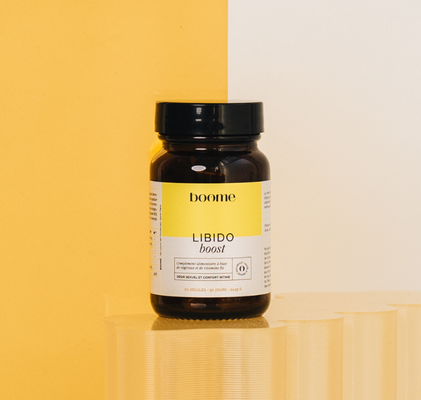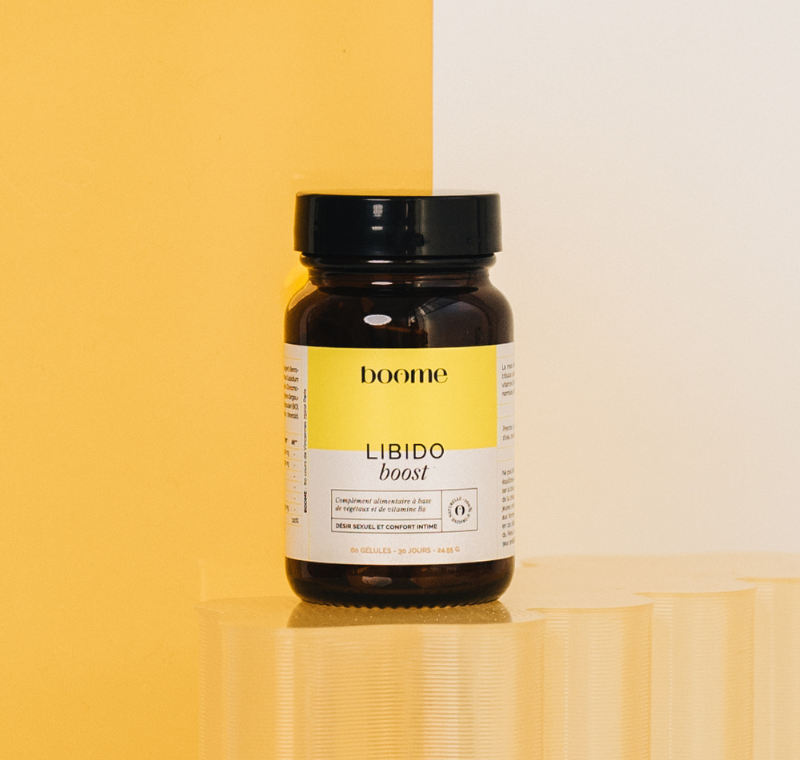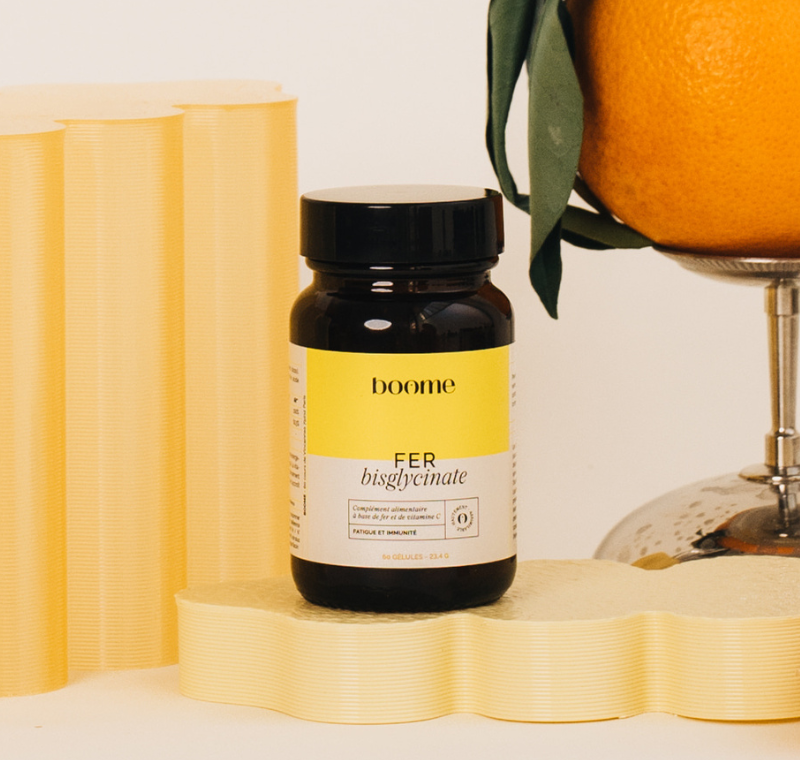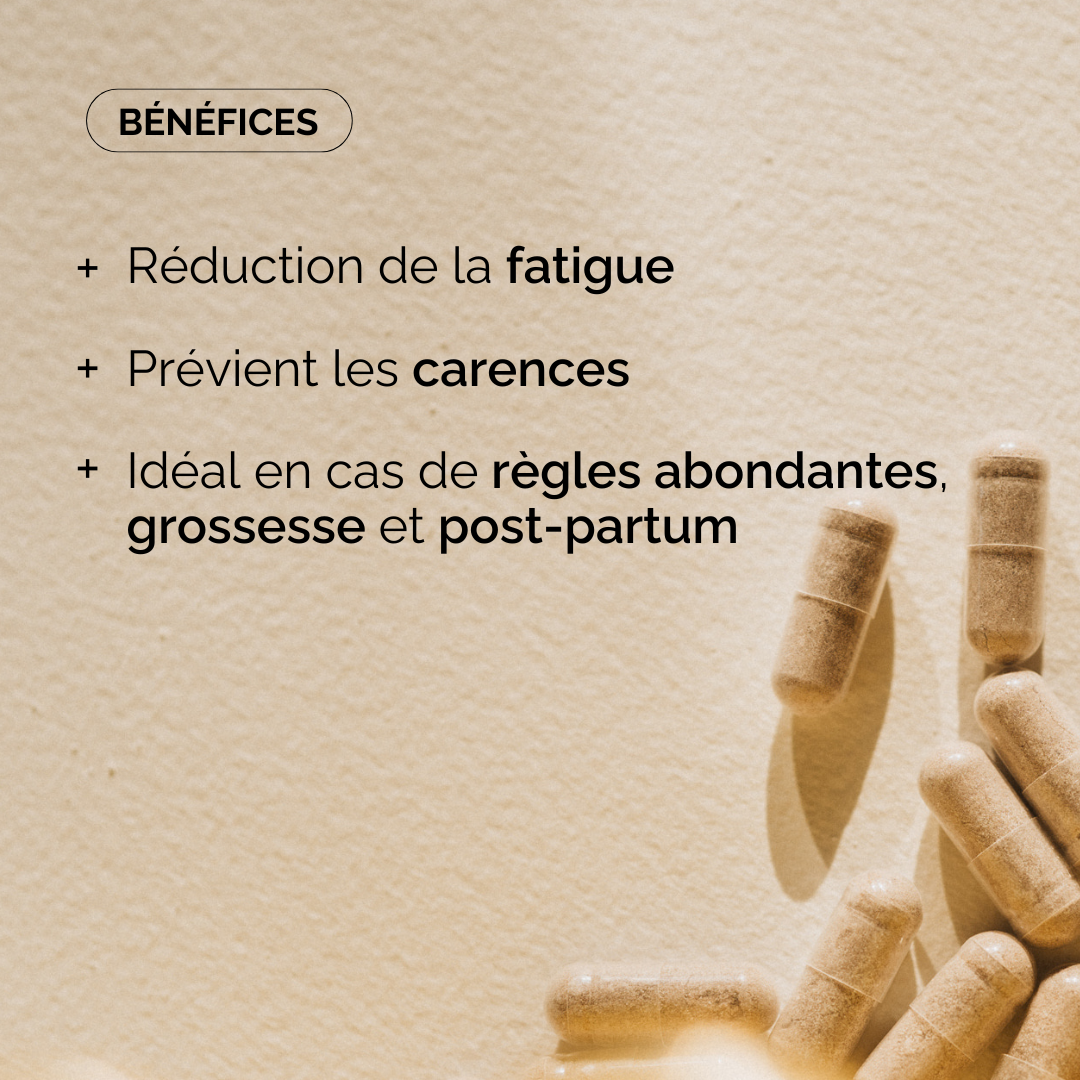
What if your morale and your desire were linked to a fragile balance... That of your mental health? Depression, stress, or anxiety—these states of mind don't just darken your days: they can also impact your libido and lead to the onset of sexual problems. This subject, often taboo, nevertheless concerns many people. How can you break this vicious cycle to find serenity and fulfillment in your (intimate) life? We lift the veil in this article. And we'll give you all the keys to reconnecting with yourself and your partner.
Why does depression sometimes mean loss of libido?
The links between mental health and low libido are complex and multifaceted. Whether we're talking about depression, anxiety, or low mood, the repercussions on sex life are generally significant. We explain why.
The biological mechanisms involved
You may not know this, but mental health is primarily based on a delicate balance of biological mechanisms that have numerous impacts on our bodies and emotions. For example, certain mental disorders can cause significant chemical and hormonal imbalances.
For example, cortisol (the stress hormone) plays a central role in our bodies. However, as soon as we are subject to anxiety disorders or prolonged stress, the body produces it in excess. This is because it focuses on stress management and neglects other functions, particularly those related to pleasure or reproduction. The result, as you might have guessed: a lack of libido is almost guaranteed.
Also, certain neurotransmitters, such as serotonin and dopamine (which regulate mood and feelings of pleasure), can sometimes become unbalanced. When our dopamine levels decrease (which often happens with anxiety or depression), our overall motivation takes a hit. Especially when it comes to intimacy. The same phenomenon occurs with dopamine, which, in insufficient quantities, can make sex less appealing.

Achat express
Mental load and its psychological impact
We also shouldn't underestimate the powerful link between sexual dysfunction and the often invisible, yet omnipresent, mental burden. This burden, linked to managing domestic and family tasks, weighs particularly heavily on women. Yes, they are used to juggling professional, personal, and parental responsibilities. However, accumulating all these obligations ends up causing mental and physical exhaustion. With that, clearly: little room for relaxation or sexual desire!
Because when the brain is overloaded with an endless to-do list, it's difficult to focus on one's own well-being or intimacy. Stress due to mental overload can become almost constant, leading to a drop in libido. Or even a complete lack of desire, which can lead to more serious sexual problems. In short, it's a vicious cycle that can be difficult to escape.
You've just given birth and you're feeling a little down? It's perfectly normal. We explain why in our article on the baby blues !
The impact of antidepressants on libido
The impact of antidepressants on libido is also well known. While they are essential for treating psychological disorders like depression, they can also have significant side effects on sexuality. Why? Because the commonly prescribed drug treatment, SSRIs (selective serotonin reuptake inhibitors), is also known to impact sexual function by:
- reducing intimate desire;
- prolonging the time to orgasm;
- causing erection difficulties.
Still not sure the link between antidepressants and libido is clear? Let's delve deeper into our explanations. These side effects are due to the direct action of medications on our neurotransmitters. While they increase serotonin levels (which stabilize mood), they can also decrease dopamine, a key hormone in pleasure and motivation. And, particularly, in the sexual sphere.
It's worth noting that this loss of libido often adds an additional layer of difficulty to a situation already marked by weakened mental health. As a result, it can sometimes be very difficult to live with.
A spiral that affects the couple
Finally, be aware that the impact of compromised mental health (or an excessive mental load) is not limited to the individual... It can also affect the relationship. For example, going through a period of anxiety, depression, or other psychological disorders can lead to a decline in sexual relations between two partners. The person suffering from sexual disorders may be overwhelmed by guilt for not "meeting expectations" and have difficulty sharing their feelings. While the other person may, in turn, find themselves in a state of incomprehension. And therefore, feel rejected.
A current issue in France
The mental health of the French has clearly deteriorated in recent years, with significant consequences for birth rates and sexuality.
Deteriorating mental health
The report published by Vie publique is unequivocal: in 2021, 20.8% of young people aged 18-24 were affected by depression. Compared to only 11.7% in 2017. They are also less likely than their elders to take care of their mental health, or to believe that there are good solutions for treating depression or anxiety.
According to another study conducted by Ifop in October 2023, 77% of French people who encountered financial problems suffered:
- of intense stress;
- of anxiety;
- or nervousness.
The survey also revealed that 32% of people facing money problems reported, at the same time, sexual problems and a drop in libido.
Correlation with the decline in birth rate
Another alarming indicator: the decline in the birth rate. Yes, in 2023, we conceived fewer babies! Public Life reports that the number of births fell to approximately 677,800, a decrease of 6.6% from 2022. This is the lowest number of births since the baby boom of the 1960s and 1970s.
This drop can be explained by several factors... Including the context of stress and instability in the country, which inevitably influences the parental choices of the French. Because anxiety linked to increasingly difficult living conditions (precariousness, cost of education) can clearly discourage many from wanting to have children.
Libido also plays an indirect but important role in this equation. Because a decline in French sexual performance and satisfaction means a lower chance of conceiving. And, consequently, fewer babies are born.
How to rediscover your joy of life and your libido?
Good news: it's possible to take action to regain emotional and sexual balance. Since depression and libido are closely linked, solutions for one often help improve the other!
Adopt a healthy lifestyle
So, how can you increase your libido and rediscover your zest for life? It starts with taking care of your lifestyle. Because yes, your lifestyle plays a fundamental role in your mental and sexual health. And, as surprising as it may seem, boosting your morale, your libido, and rediscovering pleasurable sex... can all come from what you eat!
Eat a balanced diet, rich in nutrients such as:
- omega-3;
- B vitamins;
- antioxidants.
Why? Because they promote healthy brain function and improve mood. You'll find them in:
- nuts;
- oily fish;
- or even dark chocolate…
Which are also known for their positive effects on sexual desire. All good!
At the same time, try to get some exercise. A good physical activity stimulates the production of endorphins, the feel-good hormones. These help reduce stress and increase energy levels. And therefore, your libido.
The final cornerstone of good sexual satisfaction: sleep! Yes, in addition to being a mood booster, a good night's sleep regulates hormone levels involved in sexual desire, such as testosterone.
Looking for a boost to regain energy after giving birth? Our postpartum supplements are sure to catch your eye!
Reconnecting with the couple's intimacy
Depression can sometimes be isolating, and we understand that. But remember this: a relationship can also be a space for mutual support. Limiting the worsening of sexual problems also means reconnecting with your partner. So, share your feelings, frustrations, and expectations. Without taboos. Because these exchanges can not only strengthen your emotional connection... but also break the vicious cycle of emotional isolation.
Try doing activities together: massage, walking in the forest, yoga… Why not cook together? This could rekindle your bond and help you regain emotional balance. These shared moments have a positive impact on mood. And, by extension, on libido and sexual function.
Get support from professionals
Of course, if you've already tried all of this or feel truly stuck, don't hesitate to consult a healthcare professional. A psychologist or sexologist can help you identify the root causes of your low libido, whether they're emotional, hormonal, or relational. You can also take your partner to couples therapy to work on your communication and intimacy. In short, don't stay alone!
Combating depression and low libido means, above all, understanding their close connection. Solutions include a healthy lifestyle, professional support, and working on communication within the couple. Every small step counts toward finding long-term balance. So, remember: the road may be long, but it is accessible, and the benefits are immense.










